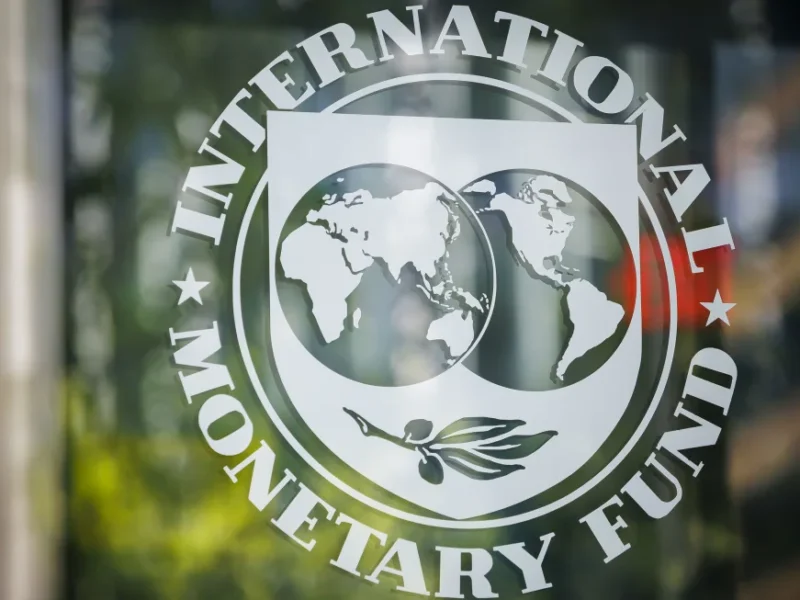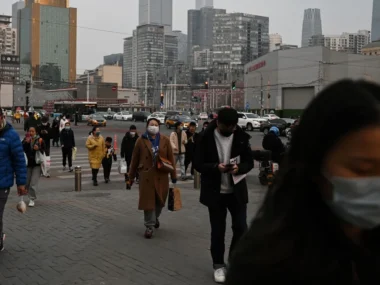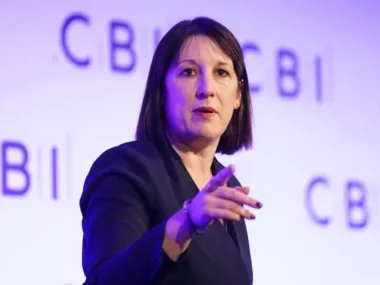The International Monetary Fund (IMF) has cautioned that persistent inflation may result in prolonged high interest rates, thereby elevating fiscal and financial risks globally.
The IMF’s latest World Economic Outlook, released on Tuesday, indicated that continuously high prices for services, such as haircuts, hotels, and restaurants, along with growing trade tensions, are sustaining inflation. This situation suggests that interest rates may remain elevated for a while.
This warning underscores that the global economy is still grappling with inflation, which is why central banks are hesitant to lower interest rates. High borrowing costs are extending the financial strain on households and businesses.
Federal Reserve Chair Jerome Powell stated last week that U.S. central bank officials need “greater confidence that inflation is moving sustainably” towards their 2% target before initiating the first interest rate cut.
Similarly, the Bank of England refrained from cutting rates last month despite UK inflation falling to the central bank’s 2% target in May. However, inflation in the services sector was higher than expected.
The Bank of England stressed that “monetary policy needs to be restrictive for an extended period of time until the risk of inflation becoming embedded above the 2% target dissipates.” The IMF’s report on Tuesday suggested that major central banks are expected to reduce borrowing costs in the latter half of the year, with one anticipated cut by the Fed before year-end, according to chief economist Pierre-Olivier Gourinchas.
The IMF projects global inflation to decrease to 5.9% this year from 6.7% last year, consistent with its April forecast.
The agency attributed the slow progress in reducing overall inflation to persistent services price inflation, partially driven by higher wages. “Energy and food price inflation are now almost back to pre-pandemic levels in many countries, while overall inflation is not,” Gourinchas noted. “Rising services prices and wages may keep overall inflation higher than desired,” posing a “significant risk” to economic growth, he added.
Tariffs will negatively impact living standards.
The IMF highlighted that escalating trade tensions “could further increase near-term inflation risks by raising the cost of imported goods.”
Recently, the US and the European Union have increased tariffs on Chinese-made electric cars, motivated by concerns that cheap Chinese imports could harm local jobs and strategic industries. The US has also raised tariffs on other Chinese products, including steel, batteries, semiconductors, and critical minerals.
IMF chief economist Pierre-Olivier Gourinchas stated that the “surge in unilateral measures,” such as tariffs, is a “key concern” for the IMF. He warned that these measures could “distort trade and resource allocation, spur retaliation, weaken growth, diminish living standards, and complicate efforts to coordinate global policies, such as those addressing the climate transition.”
The IMF projects the global economy to grow by 3.2% this year, consistent with its April forecast. However, it lowered its forecast for US growth to 2.6%, down 0.1 percentage point from April’s projection.
The economy of the 20 countries using the euro is expected to grow by a “modest” 0.9%, which is 0.1 percentage point higher than the April prediction.
The IMF also revised its 2024 growth forecasts for India and China upwards, now expecting them to grow by 7% and 5%, respectively, up from April’s forecasts of 6.8% and 4.6%. This projected growth in India and China would account for half of global expansion.
“Asia’s emerging market economies remain the main engine for the global economy,” Gourinchas said.











